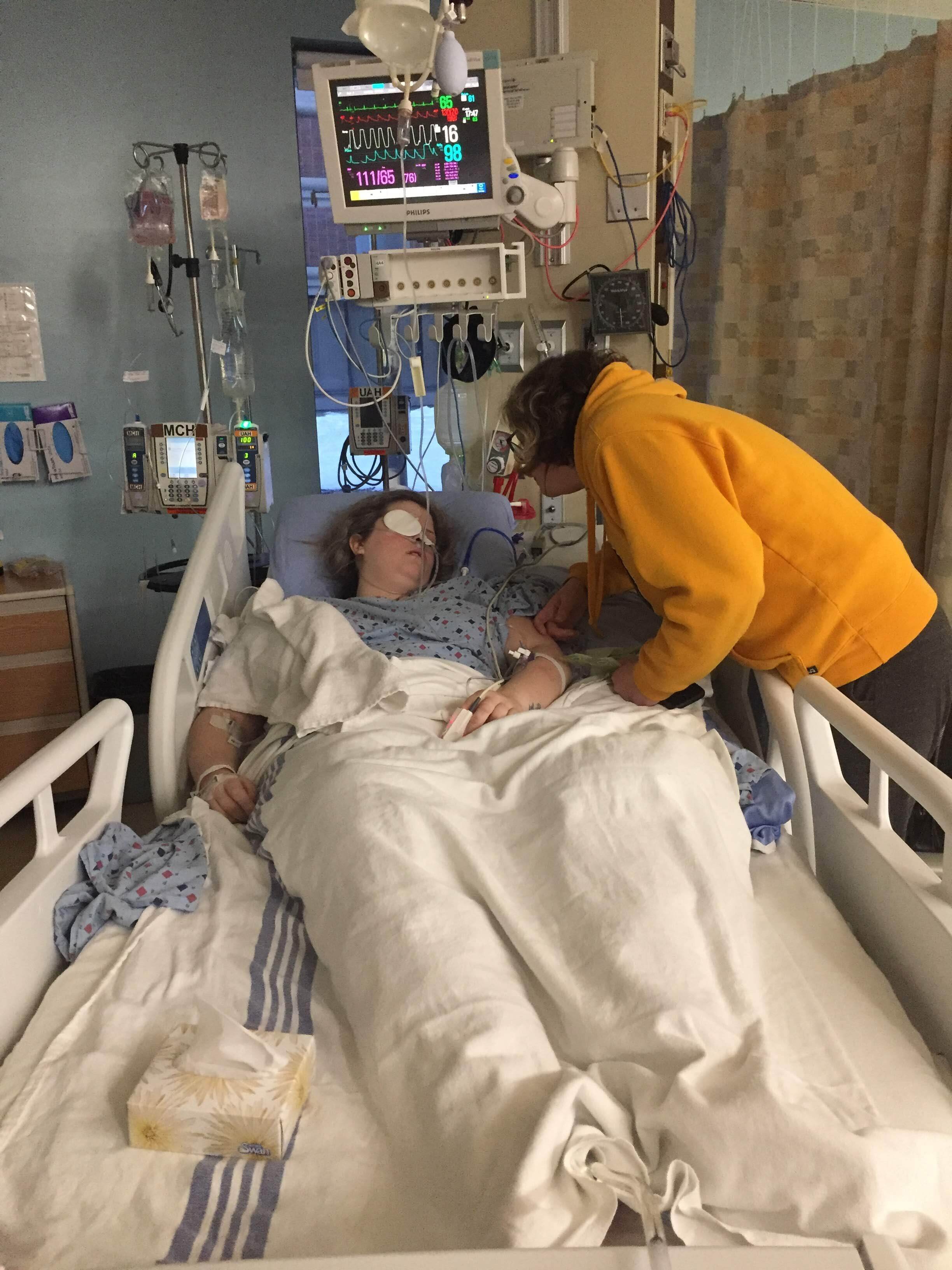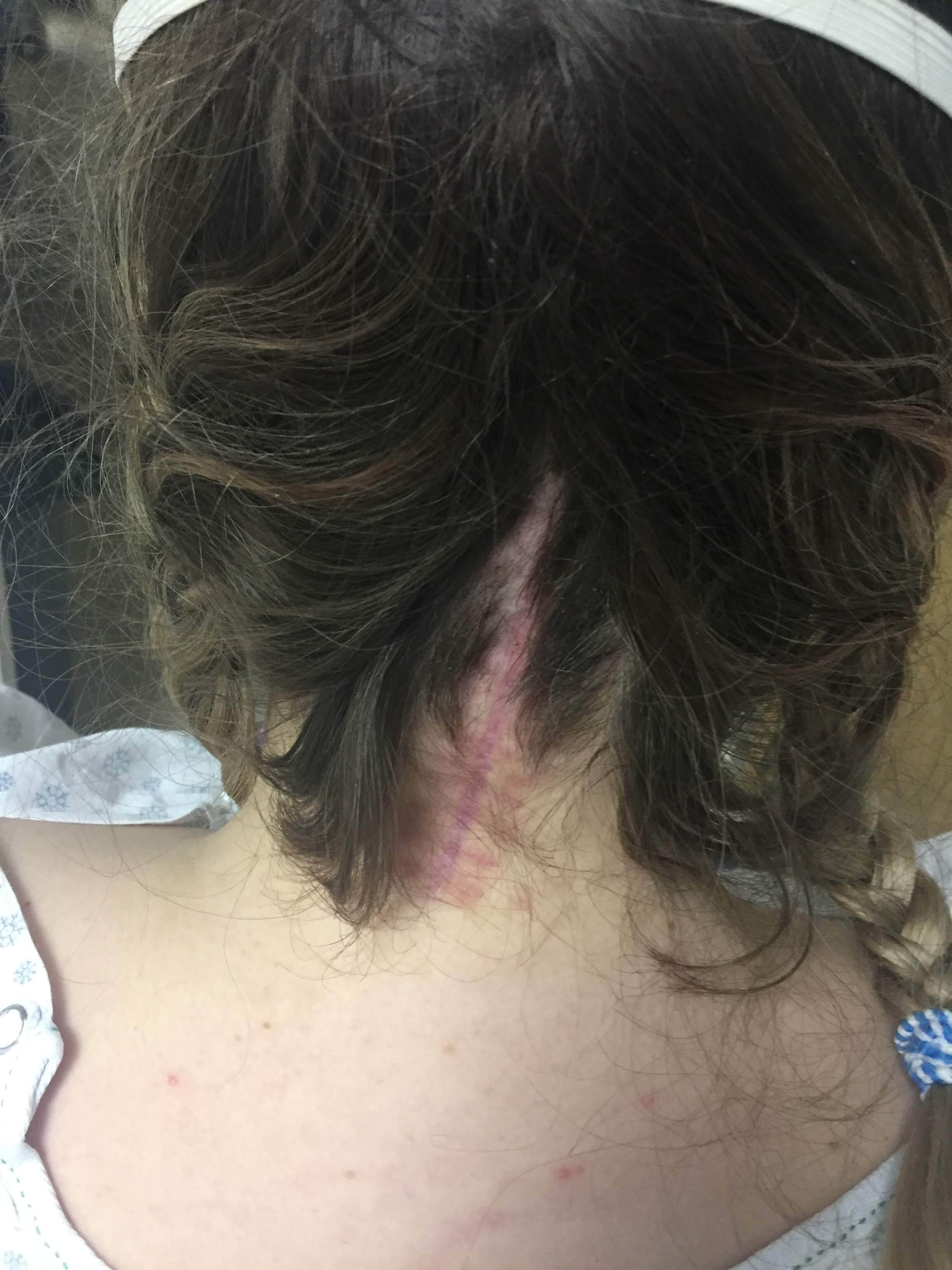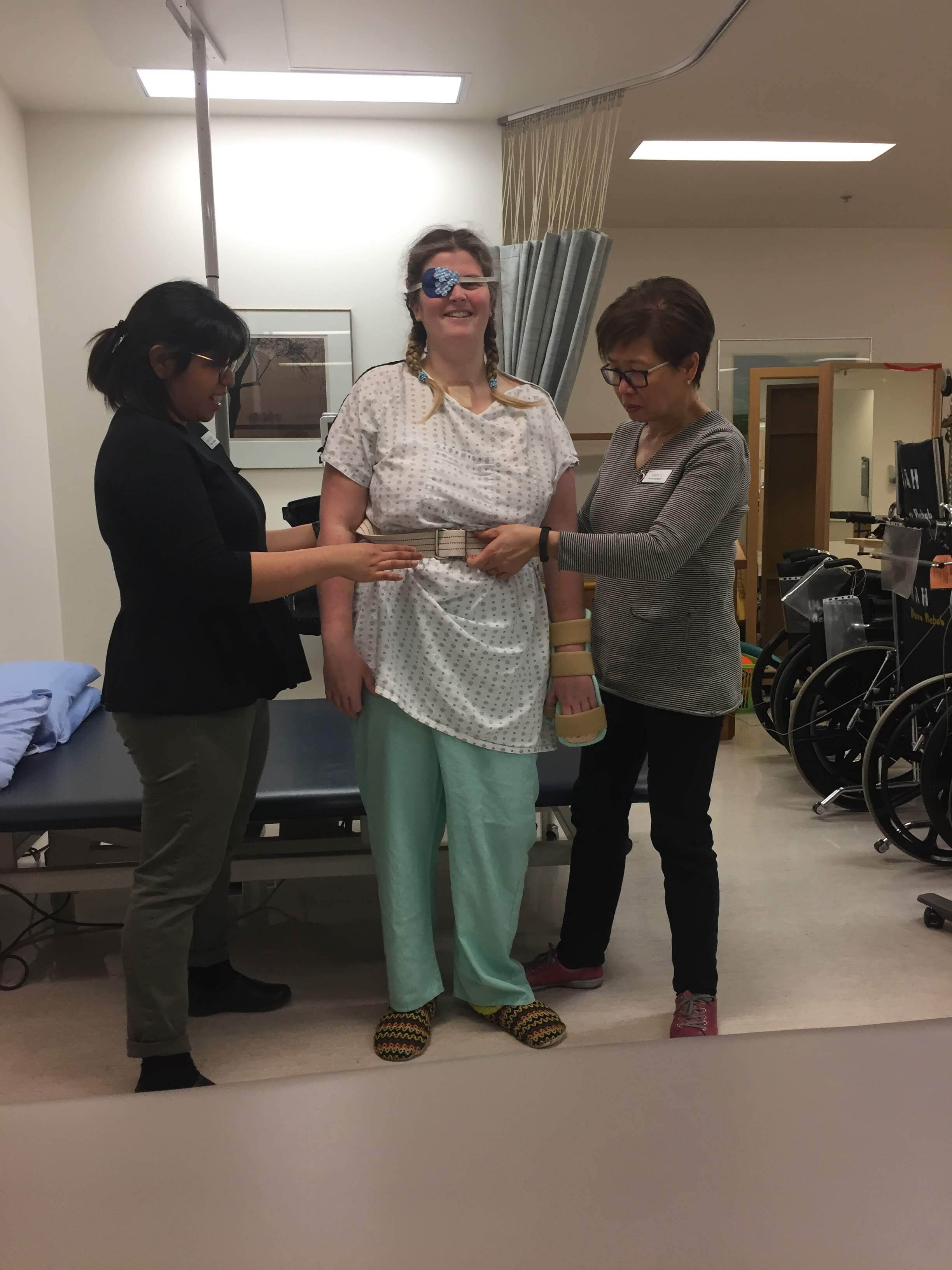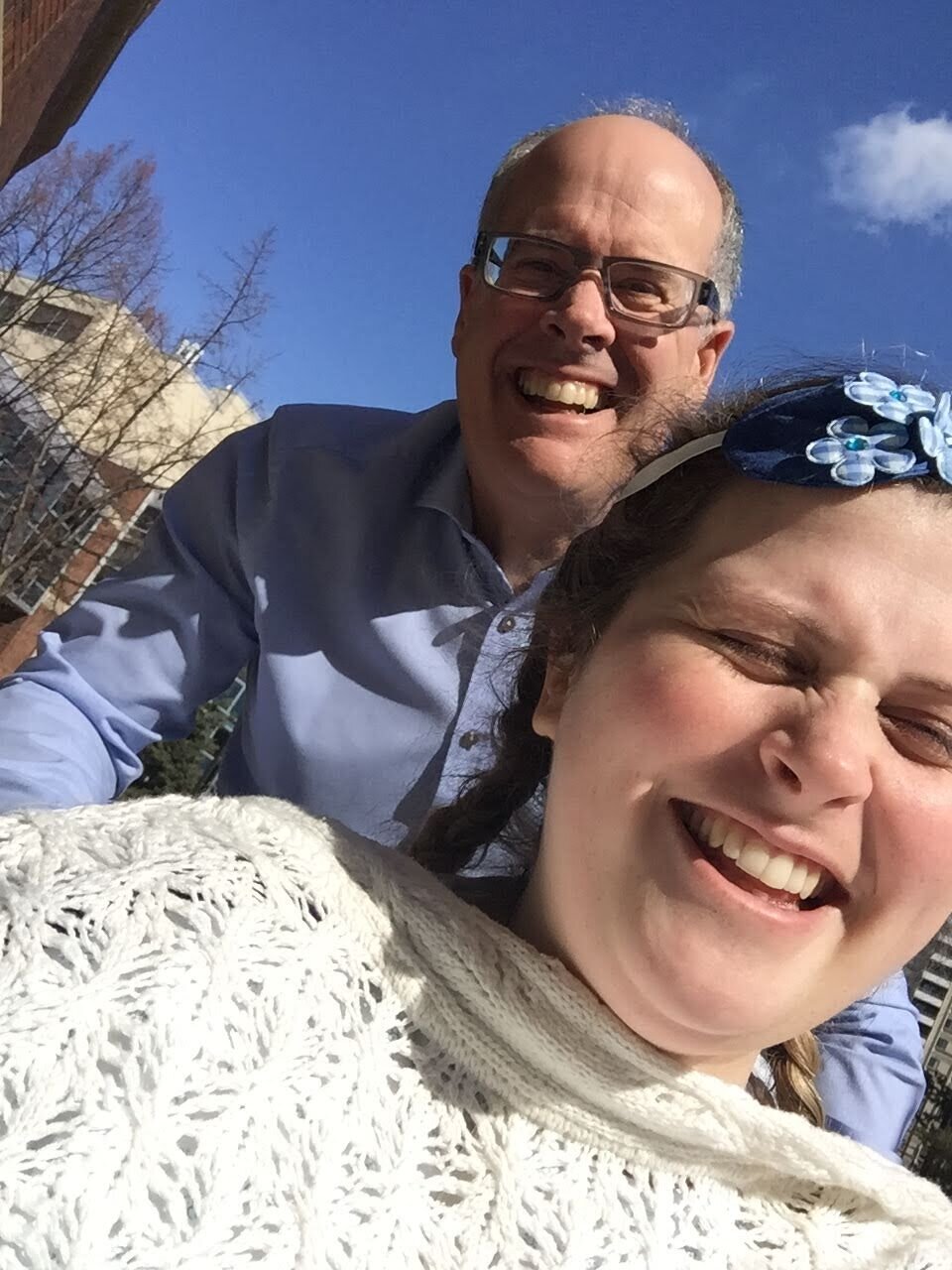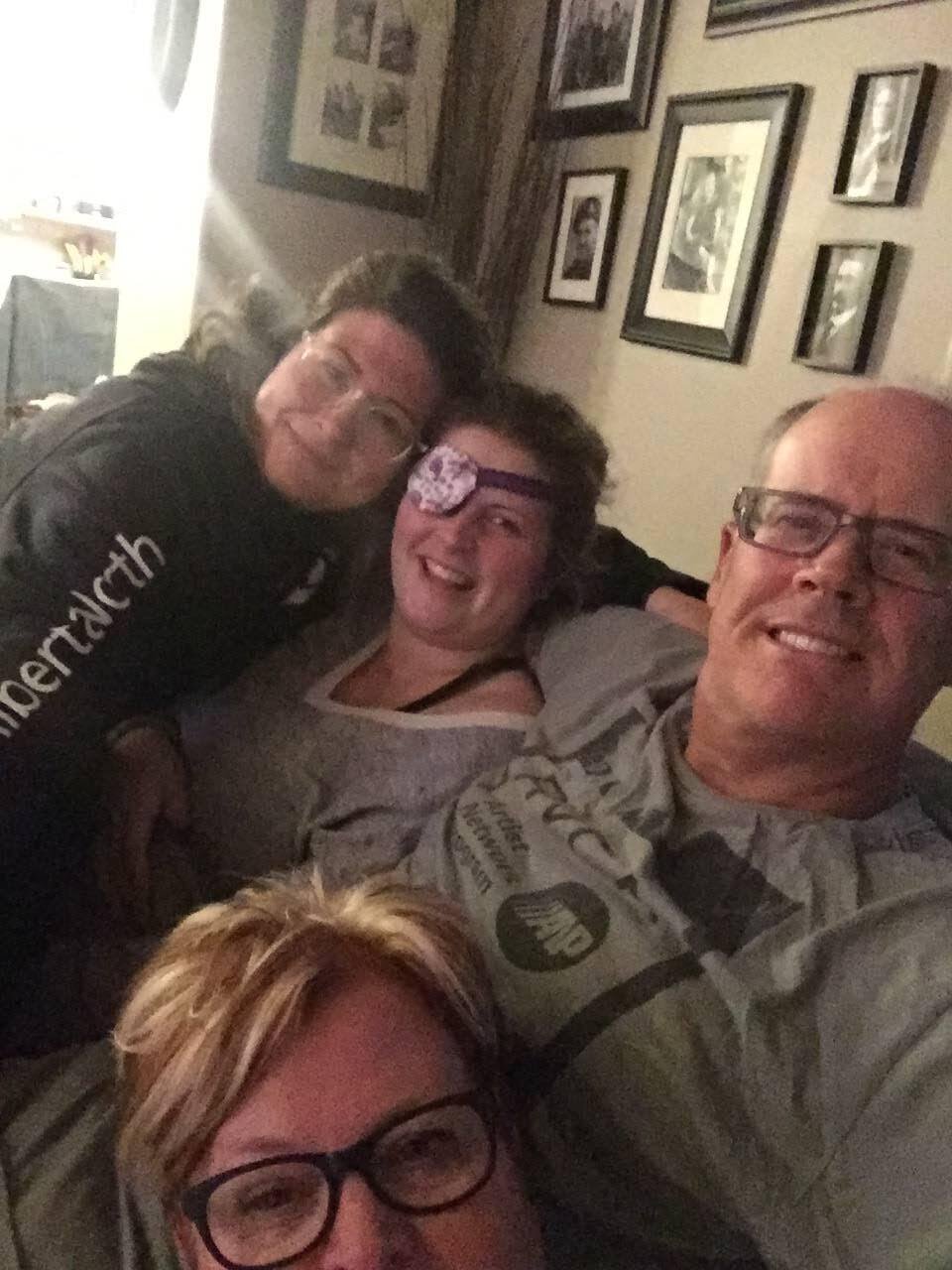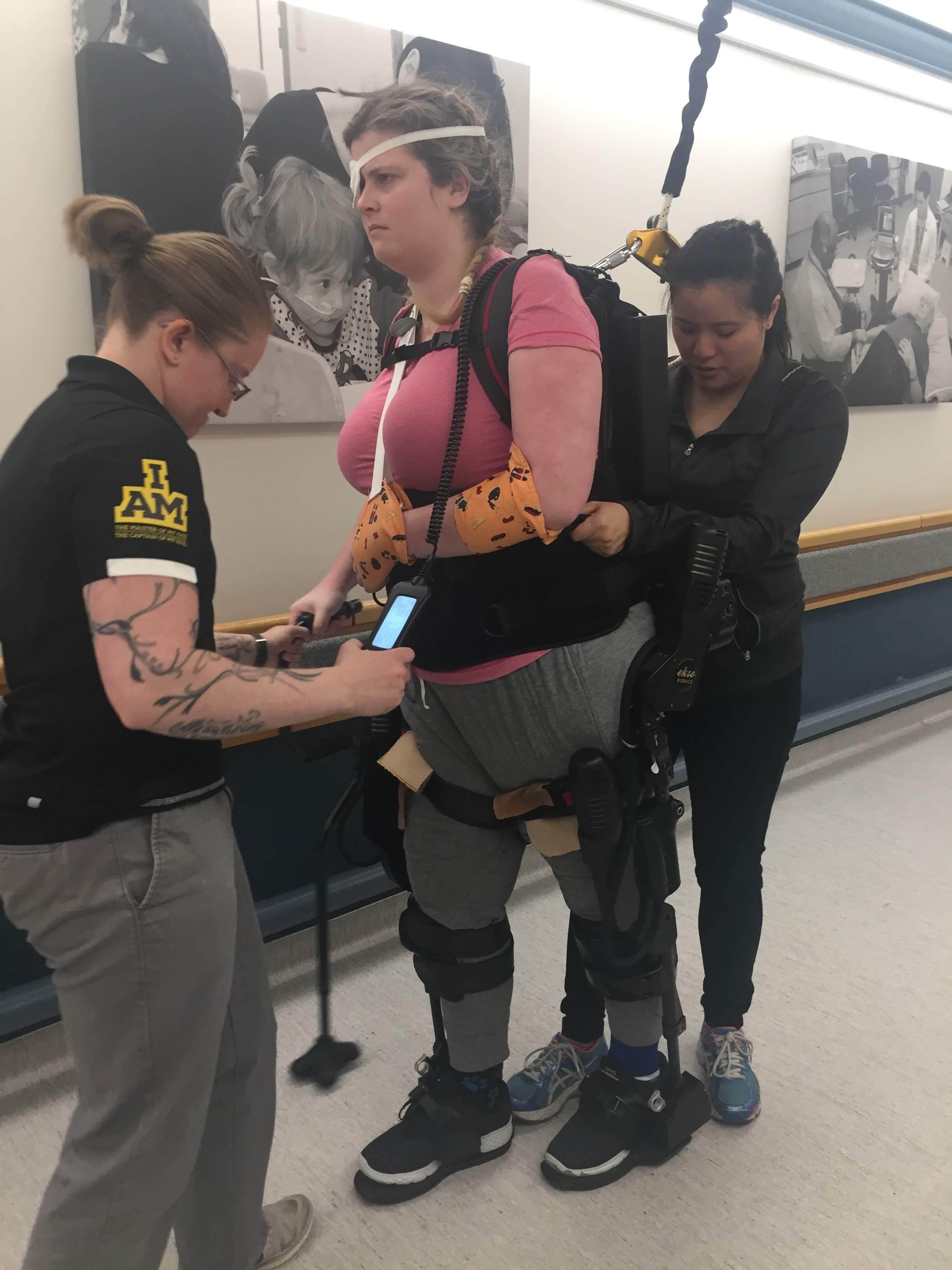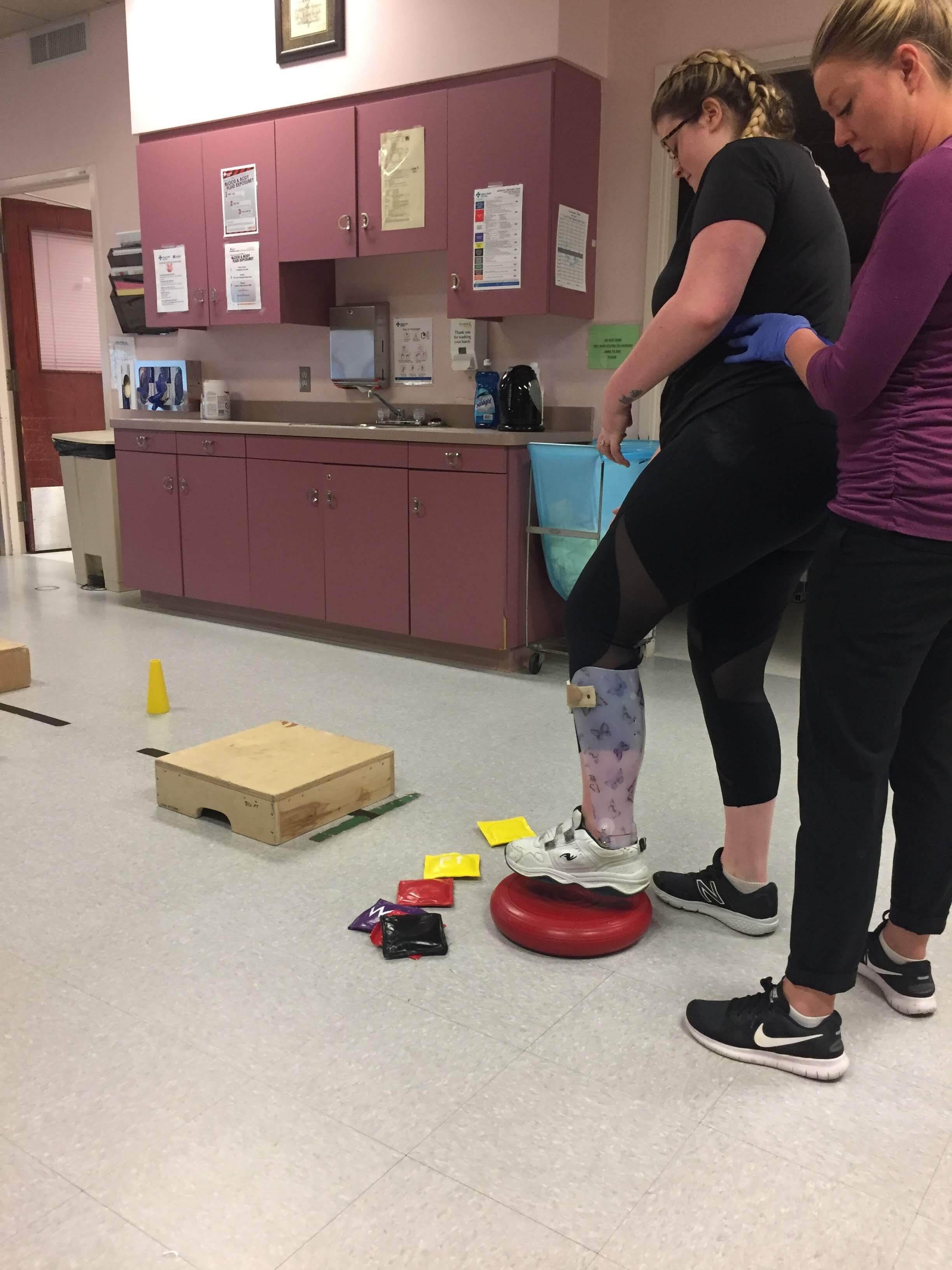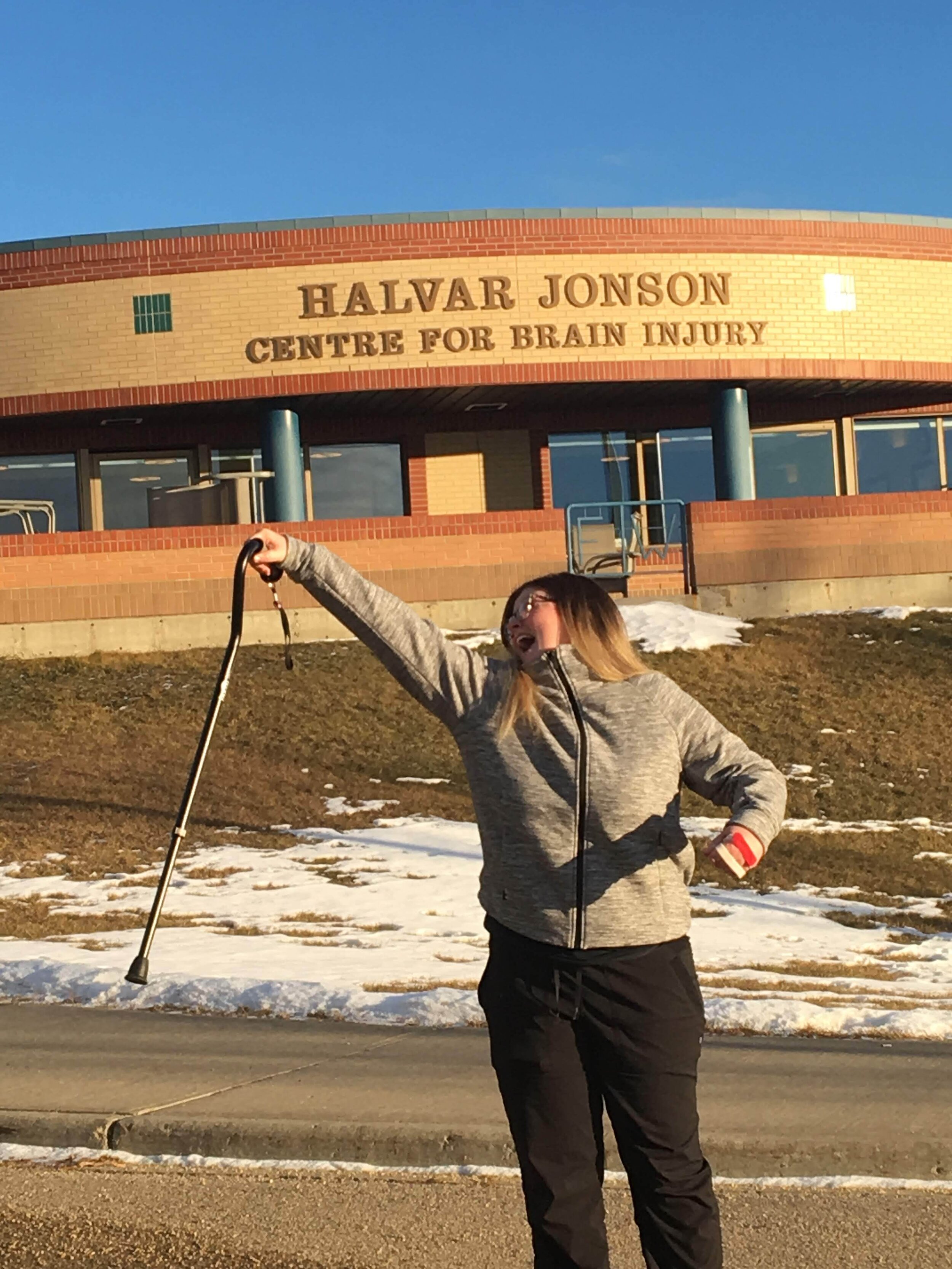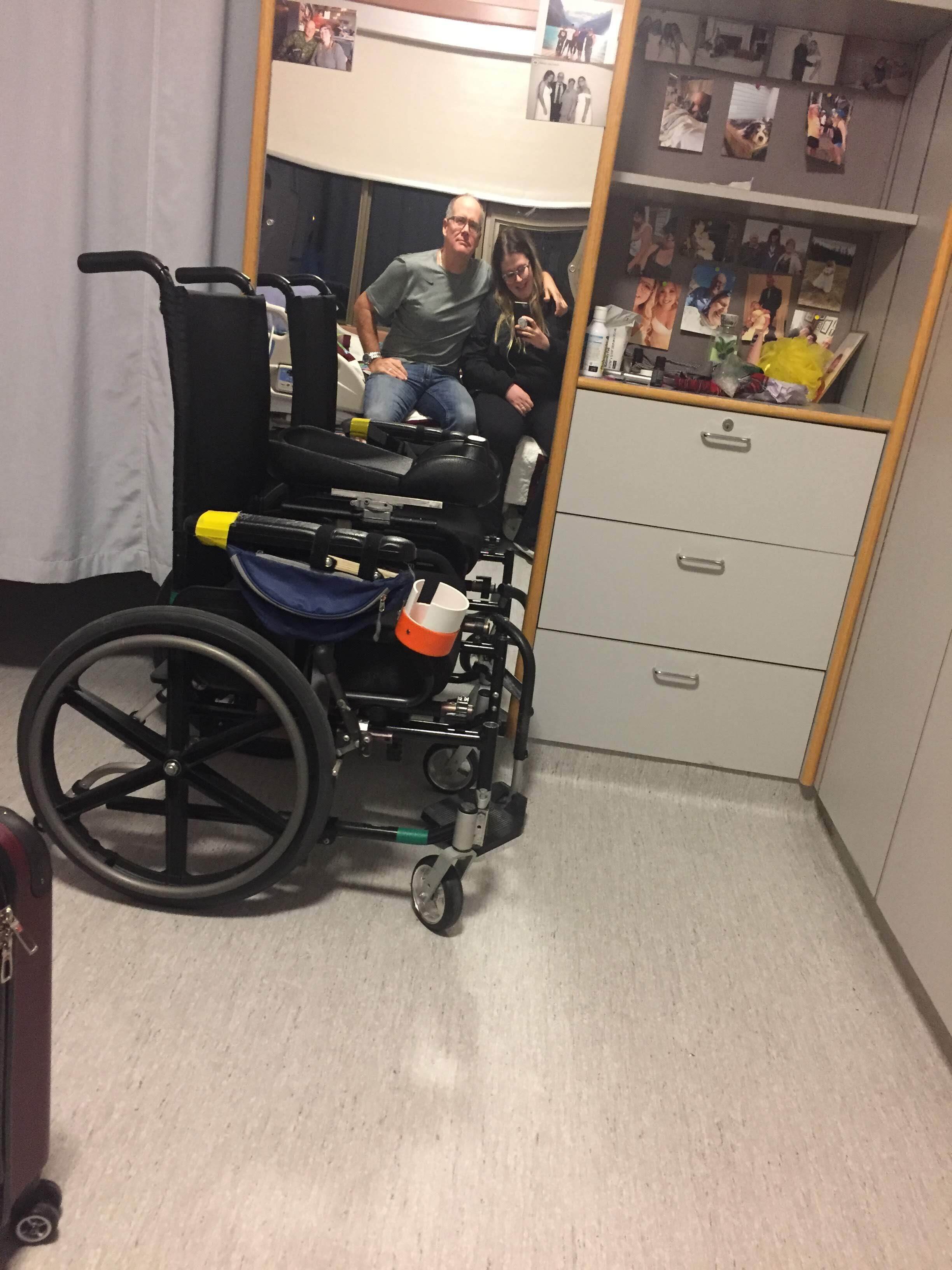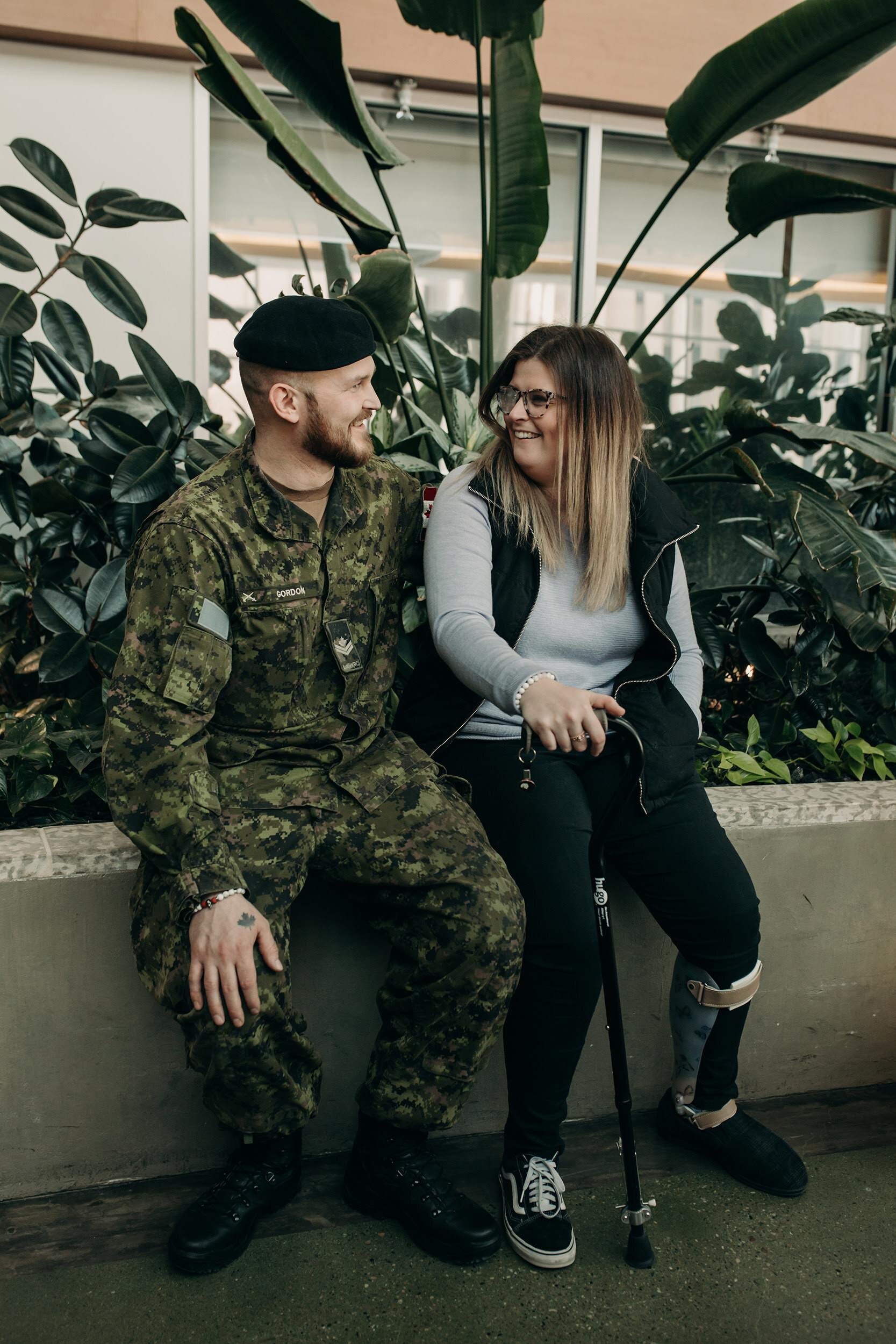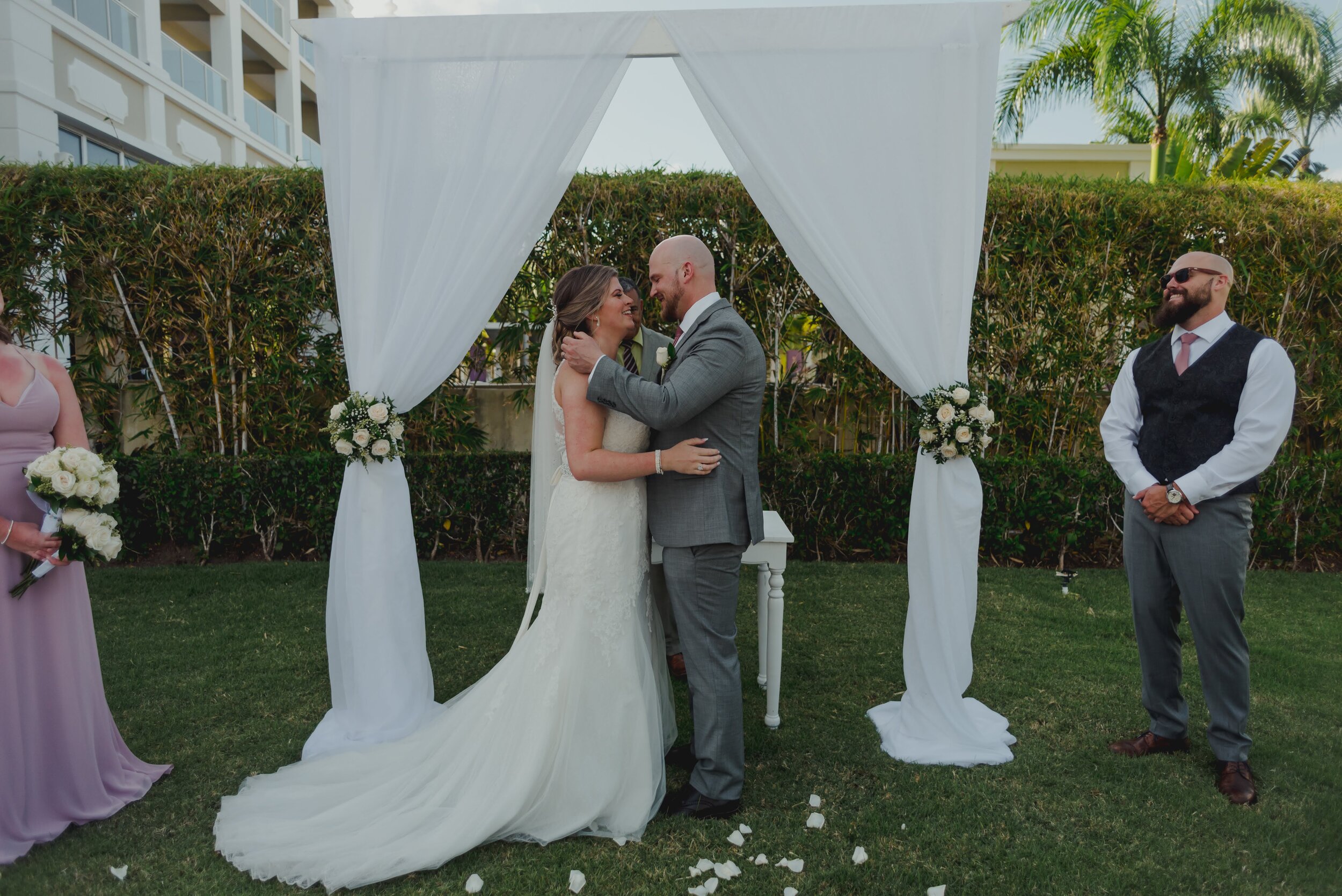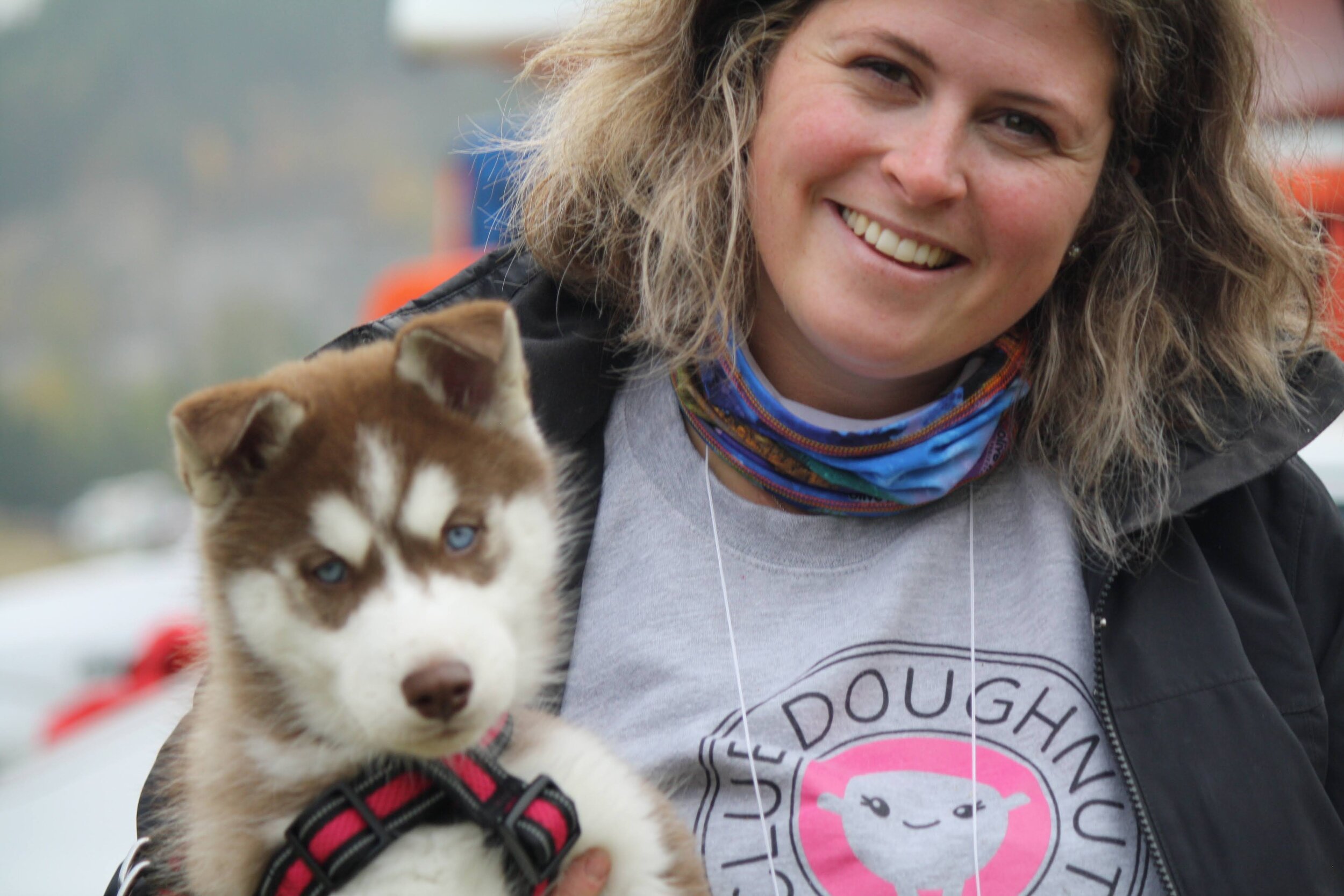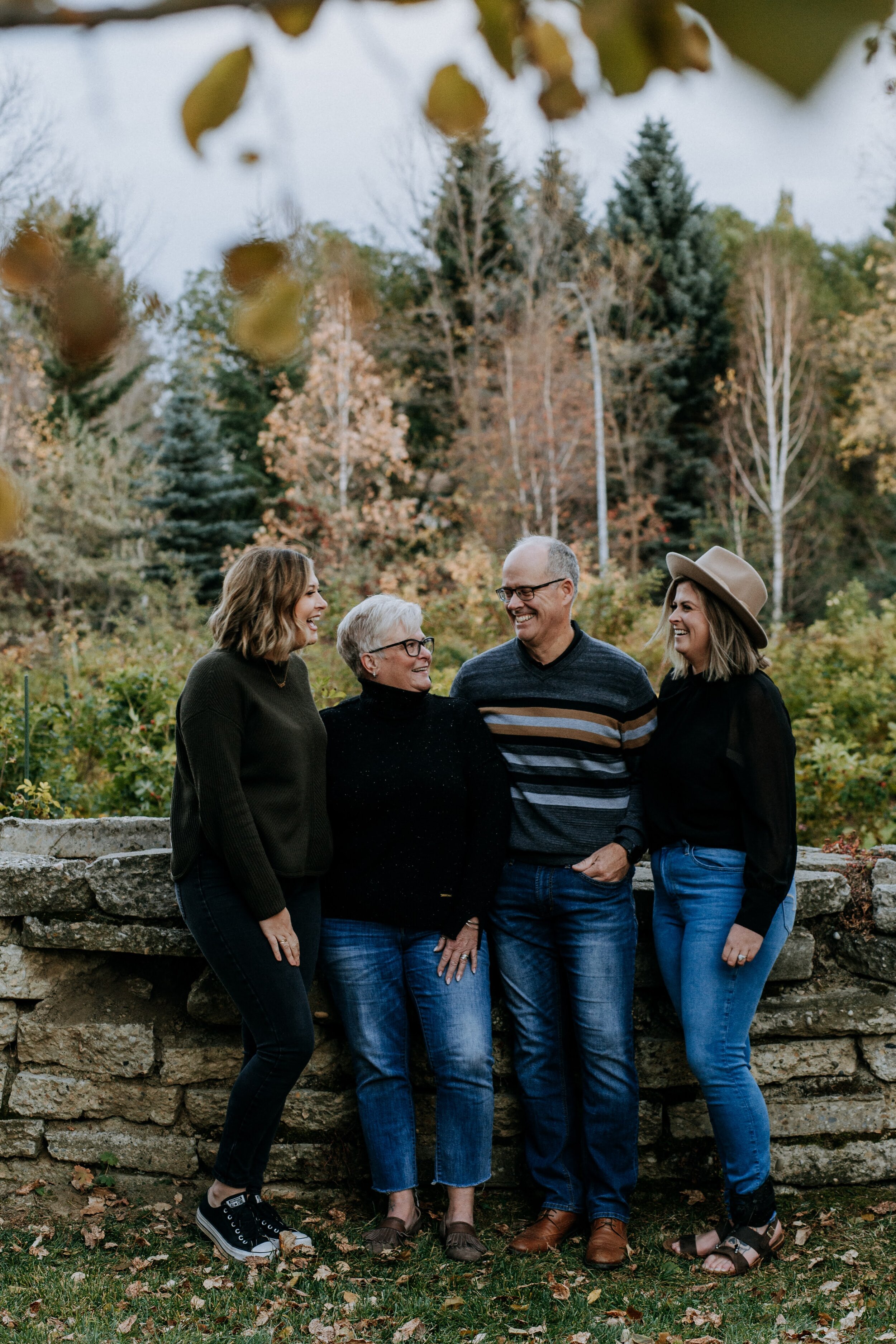Maysyn's Story - Her Fight of a Lifetime to Hell & Back
We need to stop stigmatizing the word disability. It’s ok to embrace your disability, society has taught us that being different is bad.
We need to stop stigmatizing the word disability. It’s ok to embrace your disability, society has taught us that being different is bad. Being different makes us unique and if we were all the same, it would be boring.
Written by Maysyn Gordon - Follow Maysyn’s journey on Instagram @diffstrokes4difffolks_
Hey babes!
My name is Maysyn. I’m a dog loving, doughnut eating, drag queen watching babe. I worked full time as a veterinarian medical assistant, enjoyed long walks at the dog park with my dog and spending time with my boyfriend. All this changed on February 25, 2018..
It was a Sunday, I was house sitting for my parents whilst they were in Maui. First of all, rude that I wasn’t invited. I had visited my boyfriend at work, then came home to catch up on The Bachelor. I was gossiping with my friend over texts of how crazy and emotional these girls are, when my neck felt a little off.
I decided to have a quick nap on the couch, which is very rare for me because I always go to bed for a nap because who likes to sleep in JEANS?! I woke up and the kink in my neck was still there...
I got up to make pizza, because pizza cures everything, and finished watching my marathon of my tv series.
Around 9pm, I got up to check my phone, which was charging in the kitchen. That’s when I didn’t feel so hot.
I spun like someone had pushed me 180 degrees and collapsed. I managed to call my boyfriend at work, but he couldn’t understand me as I had aphasia. When I got off the phone with him, I decided, “jeesh, what a great time to take a selfie!” #millennial
Image provided by Maysyn Linnen
That selfie saved my life.
He got the picture, and panicked. “Babe, why are you on the floor? Babe, answer me, you’re scaring me.”
I remember thinking, “ok Maysyn, you’re being a little dramatic, we all know you love being a drama queen, but just get up.”
I tried to bring my right knee to my chest to get onto my knees. My toes didn’t even move. Ok, let’s try pushing myself up. Tried to move my right arm to go underneath me to push up. My fingers didn’t even budge.
At this time, my dogs are sniffing me. My mini Australian shepherd, Madden, laid on my back. I remember thinking, “go get help, we can be the next YouTube sensation!!” He stuck by me until he heard someone come through the garage.
My boyfriend couldn’t leave work as he was on a 24 hour shift with the military. He called my sister, who was at our house, which was on the other side of the city.
She said she was going 140km on the Anthony Henday. (Which is normal for other Albertans, but not my sister.)
She got to my parents house, and found me face down, fighting for my life at the back door. I could sense her panic in her voice. She reassured me that help is on the way and that I wasn’t alone anymore.
Two paramedics got to the house, which felt like two seconds later. They perched me up, my back to the wall, on my butt, and I couldn’t even hold my head up. Lights were nauseating, sounds were deafening and it felt like the whole house was vibrating.
I couldn’t breath, I was struggling to find air. It felt like I was sucking air out of a clogged straw. I couldn't move the right side of my body. My whole right side was paralyzed. Half of my body felt like an elephant was sitting on me. What’s happening to me? I can’t see clearly, my head feels like the worst hangover x100, I’m weak, I’m gasping for air.
I was put onto a stretcher and placed in the ambulance. Since I was gasping for air, I was coughing, drooling, and gagging all over myself. The paramedic put the oxygen mask on me, that felt even more restricting!
I remember being in the ambulance and thinking, “what if I have to pee on the way to the hospital? How will I get the EMTs attention? Do you think they’ll stop at a McDonald’s so I can pee quickly?”
My sister was in the ambulance with me, in the front seat. I couldn’t see her but I was comforted knowing that my big sister is with me. She saved my life. She knew something was wrong. She had to check on me. We arrived at the University of Alberta. I felt the ambulance stop and the sirens turn off. The last thing I remember was the EMT opening the doors from the outside to take me in.
While I was getting checked out in the ER, my sister called my parents in Maui.
“They think Maysyn had a stroke.”
A healthy twenty-four year old, having a stroke? That is unheard of.
My parents got onto the earliest flight they could back home, which was only a couple hours from the time of the phone call. They flew from Maui to Vancouver, Vancouver to Edmonton. Flight attendants gave up their seats for my parents. One flight attendant on the Vancouver flight heard what was happening. She rushed over and said, “my brother is the neurologist in Edmonton, let me text him!” Someone was watching over me that day. Giving my parents the reassurance they needed during that long flight. My neurologist was indeed my parents flight attendants brother.
The next two weeks were horrid. I was in and out of consciousness. I had bone flap surgery, which is a surgery where they cut out a piece of my skull so my brain could swell. Doctors came out of the surgery and told my family and boyfriend to get some rest at home. I needed to recover from my surgery. The doctors said I would be asleep for a couple hours. This was their time to go home and sleep.
They hadn’t even taken their luggage out of the vehicle, when they got the call no parent wants to hear. “Maysyn suffered another stroke, you should come back quickly.”
The second stroke affected my left side. I had a breathing tube in for a couple weeks, which made me gag everytime I woke up. I needed an MRI, but the breathing tube wasn't conducive. I needed a tracheostomy. A quick procedure: A small incision into my neck to place a more permanent breathing tube for air to enter my lungs. When they got into my neck, they noticed I had “a difficult airway”. They needed to cut bigger and actually stitch the breathing tube to my skin to secure it firmly.
I had several MRI’s, x rays, scans, you name it. The doctors were stumped. My whole family was interviewed to be able to find an answer. Why did a perfectly young healthy twenty-four year old, not only have one stroke, but two?
I woke up one day, and felt pretty with it. I was in a private room and decided to watch Netflix on my iPad. I resumed my show to the latest episode, and was instantly confused.
“Who are these people?”
“What’re they doing?”
I looked up onto my white board in my room and noticed it was two weeks past February 25. I know a lot of stuff has happened to me but I thought that was just over a couple days.. I learnt that in those two weeks, I had another stroke, I had my trach placed, my right eye had turned inwards from the second stroke and the left side of my body was paralyzed. My mom kept up on updates of me on her facebook, if anyone wanted to read them.
I didn’t witness myself with tubes in my face, wires connected to my body, and getting poked everyday, sometimes several times. My family saw me laying lifeless in a bed. Not knowing what the next day would bring. I was in so much pain. I couldn’t locate where, it felt like it was just my existence that hurt. I was on quite the cocktail of drugs, but it didn’t seem enough. I recall thinking, “am I strong enough to push through this excruciating pain? How much pain can a human body go through?”
It felt like I was coming close to “the light.” It was bribing me, showing me how easy it could be to just end it all here. I could imagine myself just floating, care and pain free. No tubes, wires or anything connected to me. I was free. Everyday, these thoughts were in my head.
Days would pass, and I felt better than the day before. Everyday, I got stronger. Mentally and physically. I could feel it, my nurses could see it and my family knew it.
Love saved me. I needed to show everyone how strong I was. They needed to know that I will not let my pain win. I wanted to get better for my loved ones.
My family visited everyday for sixty days straight. My parents came in the morning, playing games with me, reading cards I had received and showing videos of my dog. My sister came in after work, usually bringing one of our friends. My sister knew I just wanted to listen to them gossip. My boyfriend came after my sister's shift and would read to me, until the drugs kicked in and I dozed off.
I was at the University of Alberta for three months. I had several family members drive up to visit me, friends take time off work to hang out and coworkers stop by.
I was then transferred to the Glenrose Rehabilitation Hospital for the next three months. I had to learn how to walk, move my arm, swallow, eat, talk.. etc
Therapy was hard. I was put in a wheelchair. My muscles were so weak. I wanted to get better, I needed to get better. Taking a step wasn’t just “taking a step”. You need to shift your weight, lift your knee, kick your foot forward, shift your weight back, heel first, then toe.
I was the youngest stroke survivor on my unit by at least fifty years. I felt isolated. I couldn’t relate to anyone. I was young enough to be their granddaughter. I occupied myself by scheduling friends & family to come visit, Netflix, and being in the craft room.
My doctor kept saying something about a “Halvar Jonson.” A more intense rehab hospital located in Ponoka, Alberta. Everytime my doctor said I would possibly be going there, I instantly had anxiety. Getting sent off to Ponoka meant I was worse than I thought. I felt like going to Ponoka was Glenrose saying, “we can’t do much with her, you try!.”
I had to get interviewed by their doctor to assure I was going to be a dedicated patient. They wanted to make sure I would put in the work. They told me their program is at least six months. A couple days passed, and I got approved to go to Ponoka. My family helped me pack up my room and off I went!
I was nervous. I didn’t know what to expect. Everyone at Glenrose told me about Halvar Jonson and how great it was. I, for some reason, didn’t believe them. My parents drove me to Ponoka, so I didn’t have to take an ambulance by myself. The car was packed with all my cards, gifts, colouring books that all my friends gave me over the past six months. I rolled into the hospital, with my parents behind me. Ready to conquer these next few months.
I was met at the front by an intake coordinator, she took my picture and asked me several questions about myself and my recovery. My first couple weeks at this new hospital were a lot of testing. Cognitive, balance, strength, memory. At Glenrose, I had physical therapy at eleven then occupational therapy at three .
At Halvar Jonson, I started at 8am and didn’t quit until 8pm. My day was filled with physical, occupation, speech and recreation therapy, cognitive class, Ed Centre, hand class, inspirometer class, leather and ceramics room and games group. I was busy. I loved it. Halvar Jonson felt like Disneyland for brain injured patients! I loved all my therapists, nurses, aids, doctors, janitors and even kitchen staff.
I worked hard everyday as I knew this was a once in a lifetime opportunity. Doctors had told me two years post stroke is the best time to push intensive rehab as your brain is now moulding again. After eight months of being in a wheelchair, I got strong enough to walk on my own with a cane. I left my wheelchair on the unit, and walked everywhere I could.
I was very lucky with my time in Ponoka. My mom took their trailer out to a local campsite and camped out for a month, my sister would drive out just to take me to a restaurant for dinner and my boyfriend would take off on Friday to be able to come get me for the weekend. Every other weekend my parents would drive up on Friday, after my therapies, and drive me back Sunday night around 9pm.
One day, I was walking on my unit, when my social worker called me into her office. “All your nurses, doctors and therapists have agreed that you are healthy enough to get discharged in a month!” This place I dreaded going too, is now kicking me out? It’s only been 6 months. Some of my friends have been here for 9 months! She explained to me that I’m doing well in my recovery and they’ve done everything they can to prepare me for the community. This was good news!
I walked back to my room, called my dad and cried hysterically. I wasn’t ready to leave. I like it here. I’m safe here. My dad explained to me that this was the next chapter in my recovery. He reminded me of how much I didn’t want to go to Ponoka in the first place. This was the same feeling. I needed to push for the next chapter, everyone knew I was ready. But I didn’t.
My time at Ponoka was the best experience of my life. I am the person I am today, because of every single person in that hospital. I have made lifelong friends. I imagine visiting and showing current patients, hard work pays off. Not to give up, therapists aren’t mean, they just know you can fight!
Since my discharge from Ponoka, I’ve gotten my license back, received corrective eye surgery, lost 70lbs and got married! This whole experience has been an eye opener. I thought my life was over. I was wrong, I was given a second chance at life.
I want other people with disabilities to know that you are not alone. There is always someone out there that can relate to you. Do not be embarrassed of your disability. It is a part of you, embrace it. You are a strong, warrior, badass human being.
Disability, as a word, has such a bad reputation. Every person I’ve met, who had some form of disability, is way more than that. They are smart, kind, strong, courageous, beautiful souls. We need to stop stigmatizing the word disability. It’s ok to embrace your disability, society has taught us that being different is bad. Being different makes us unique and if we were all the same, it would be boring.
I’m very fortunate with the support I received while I was in the hospital. I understand everyone has their different stories of recovering. I’m comfortable sharing my story, in hopes someone will feel comfortable enough to share theirs. If you aren’t, that is ok.
I am always available through my Instagram. I hope you will feel comfortable enough to reach out to me. I’m here for you and ready to listen. On Instagram, I found this community of strong, dedicated survivors. I read their stories, and could relate to certain parts. Their stories were inspiring and I learnt so many new tools, exercise or met new friends!
I have been to hell and back but I wouldn’t change a thing. Thank you to family, friends, coworkers, acquaintances, doctors, nurses, aids, therapists, kitchen staff, social workers, and hospital workers.
I am a young disabled woman and I am proud.
Written by Maysyn Gordon
Follow Maysyn’s journey on Instagram @diffstrokes4difffolks_
Photos provided by Maysyn Gordon.
Professional Photographers



